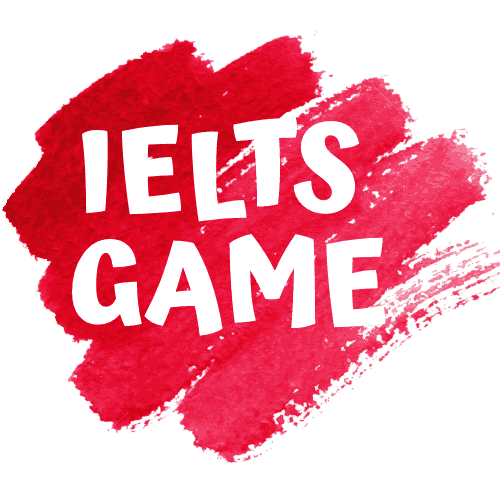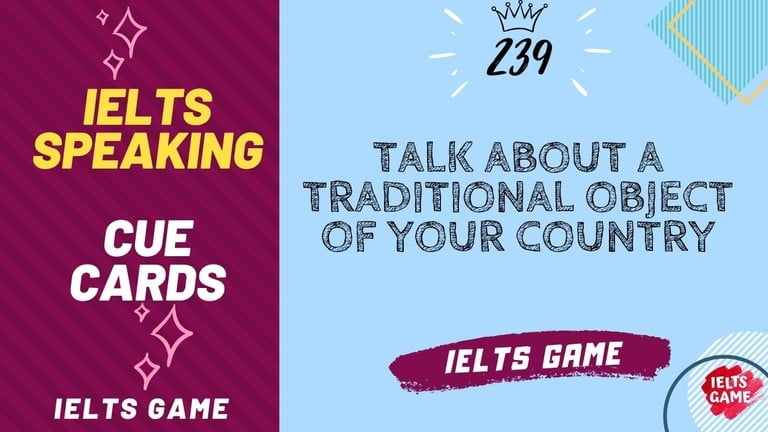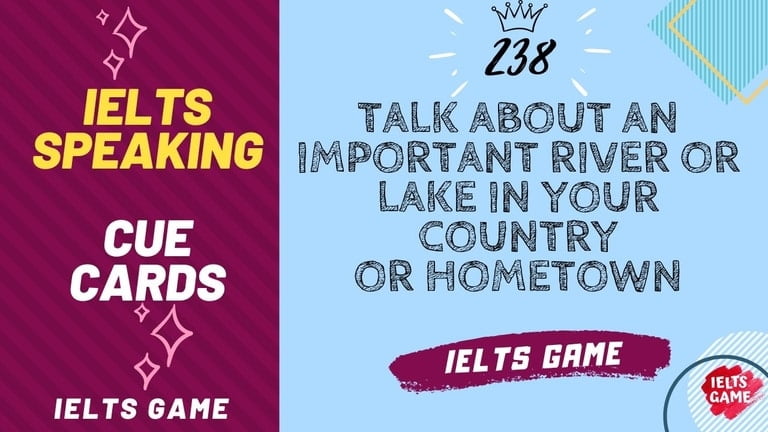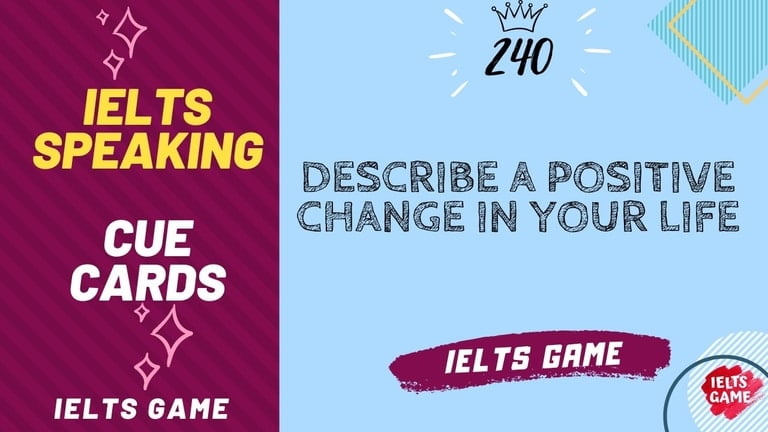239. IELTS Cue Card -
Talk about a traditional object of your country
In this article, IELTS Game will add number 239 IELTS cue card sample on the series of 2022 cue cards with band 9.0 model answers and part 3 follow up questions that will help you in your IELTS test preparation.
This cue card is related to “Traditional object description” speaking topic and asking you to “Talk about a traditional object of your country“ and asking IELTS speaking part 3 follow up questions from Makkar May-August 2022 cue cards guesswork.
IELTS Cue Card Sample 239
Talk about a traditional object of your country.
You should say:
- – What is it?
- – How is it made?
- – When did you try it for the first time?
- – Why do you like it?
Band 9.0 Sample Answer Ideas.
• India is rich in tradition and culture
• It is also very diverse.
• Traditional products are different in different parts of India
• Here I would like to talk about a traditional product which is of Punjab
• Jutti is an urdu word for shoe with a closed upper attached to a sole
• These are traditionally made of pure leather.
• Then it is beaded, threaded and embroidered in different eye-catching colours.
• It is made by skilled craftsmen.
• Some designs are very intrinsic and delicate
• Some are just plain or coloured leather
• I have many Punjabi juttis
• I wear them very often
• I remember, the first time I wore Punjabi jutti was on my cousin’s wedding, two years ago.
• After that I liked it so much that I started wearing in routine.
• It is very comfortable
• It is the most versatile footwear.
• It is popular among both genders.
• It can be worn everyday, on weddings, parties and on festivals
• It was first introduced by the Mughals and was very popular among the royalty
• First the raw hide is processed
• Then it is dyed
• Then the cobblers make the juttis
• Final stitching and embroidery is done in the end.
• I like it because, it looks beautiful and is also very comfortable to wear.
IELTS Speaking part 3 Follow Up Questions.
Here are some follow up questions you may be asked during part 3 IELTS Speaking exam by the IELTS examiner related to 1st cue card:
“Talk about a traditional object of your country or
Talk about a traditional product of your country that you bought IELTS Game”
1. Describe another traditional product from your country (apart from what you spoke about)?
India is a diverse country. There are many traditional products in India. We have earthen pots, ceramic pottery of Jaipur, puppets of Rajasthan, phulkari embroidery of Punjab, hand-knotted carpets of Srinagar and many more.
2. What are the benefits of traditional products to locals?
Traditional products keep the locals in touch with their culture and tradition. They also become a source of earning, when tourists show interest in these products and buy them.
3. Do you think the government should help in the promotion of traditional products?
Definitely, it should. If governments promotes traditional products, only then these will remain alive, otherwise these products will die and so will our culture and tradition.
4. Do you think because of globalization countries are adopting each other traditions?
Yes, as countries know about these traditions, they adopt them. In a way it is good. Diwali is celebrated by many people outside India also.
We have also started celebrating Valentine’s Day, Grandparents’ Day, Father’s Day and Mother’s Day etc
5. Why people buy traditional products because of their traditional value or because of they are handmade?
People buy these products for both these reasons. Handmade things have their own charm and only handmade thinks can have the real traditional value.
When things are made in bulk using machines, then the whole traditional value of the thing is lost.
6. Did the traditional things of the past have more value than the present things?
Yes, of course. We must remember that the things we consider new and modern today will become traditions for the future.
So, the traditional things of the past were different and as time passes those things become antiques and so become more valuable.
7. Did the traditional things of the past have better quality than the present things?
Not necessarily. The things made today also have good quality. Actually, it depends on the person making those things. There have always been good craftsmen and bad craftsmen.
8. Is it necessary to protect traditions?
Yes, of course. Traditions are our roots. They bind us to our past. Without traditions we would feel cut off from our past.
9. Do you think teenagers should learn about traditions?
Yes, they should be taught. Otherwise, they will feel cut off from the past. As it is, the teenagers of today are being lured by the global culture and are drifting away from traditions



